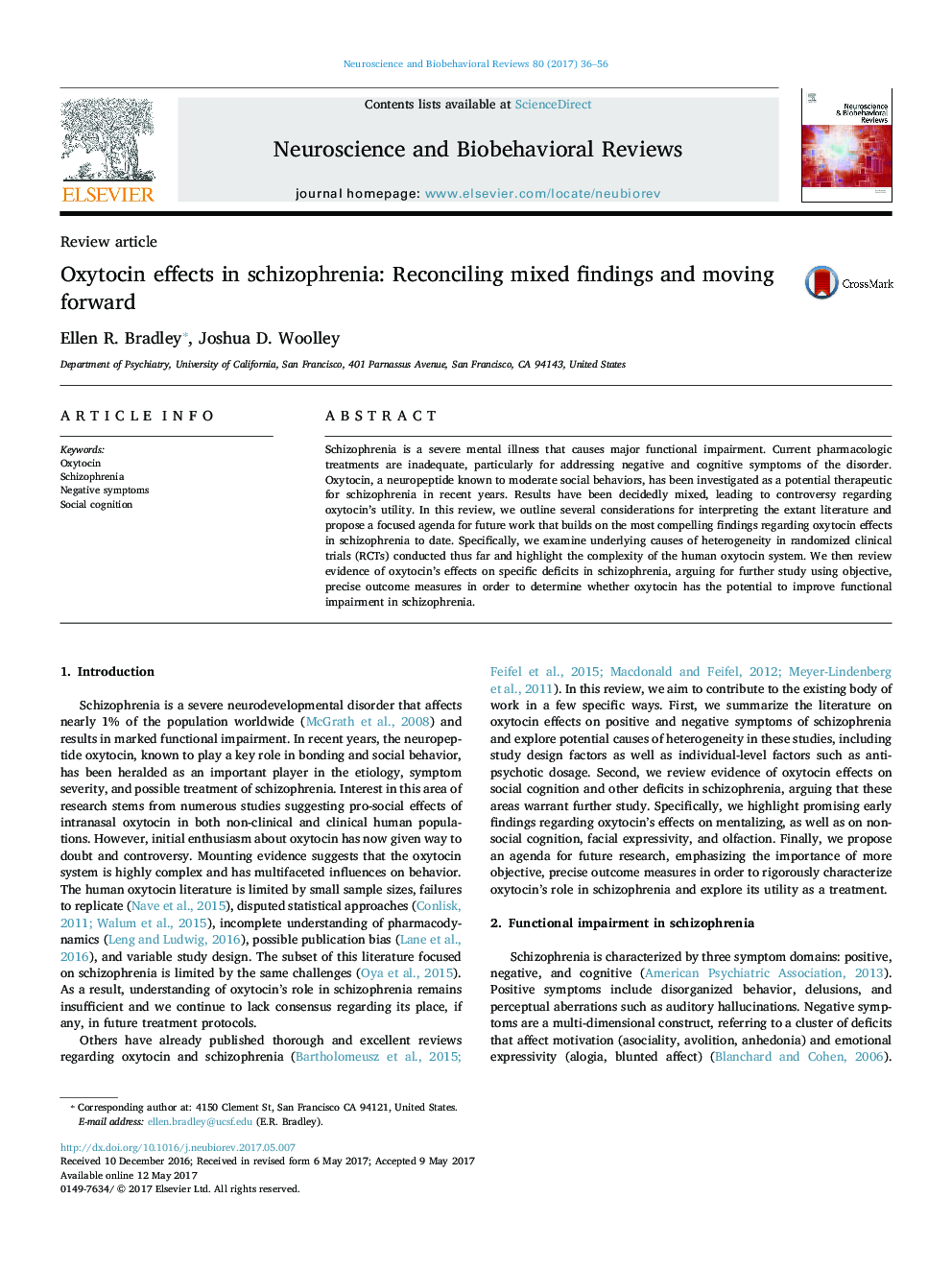| Article ID | Journal | Published Year | Pages | File Type |
|---|---|---|---|---|
| 5043432 | Neuroscience & Biobehavioral Reviews | 2017 | 21 Pages |
â¢Studies of oxytocin in schizophrenia have yielded mixed results.â¢Study design and individual differences may account for this heterogeneity.â¢Oxytocin may improve specific deficits not captured in many studies.â¢Future studies should employ precise, objective outcomes to capture oxytocin effects.
Schizophrenia is a severe mental illness that causes major functional impairment. Current pharmacologic treatments are inadequate, particularly for addressing negative and cognitive symptoms of the disorder. Oxytocin, a neuropeptide known to moderate social behaviors, has been investigated as a potential therapeutic for schizophrenia in recent years. Results have been decidedly mixed, leading to controversy regarding oxytocin's utility. In this review, we outline several considerations for interpreting the extant literature and propose a focused agenda for future work that builds on the most compelling findings regarding oxytocin effects in schizophrenia to date. Specifically, we examine underlying causes of heterogeneity in randomized clinical trials (RCTs) conducted thus far and highlight the complexity of the human oxytocin system. We then review evidence of oxytocin's effects on specific deficits in schizophrenia, arguing for further study using objective, precise outcome measures in order to determine whether oxytocin has the potential to improve functional impairment in schizophrenia.
